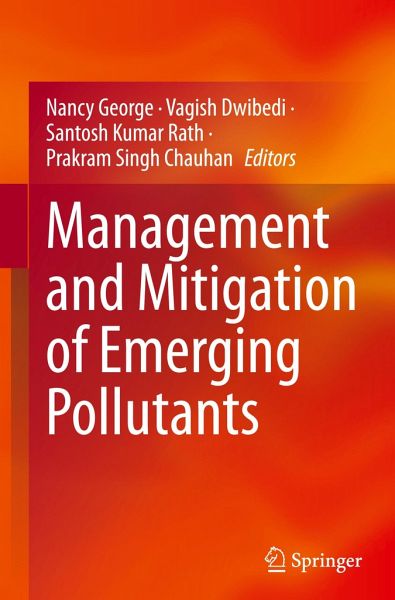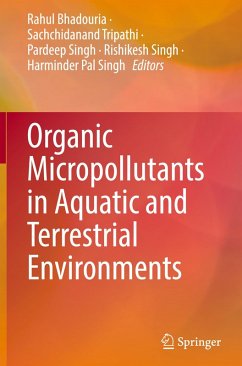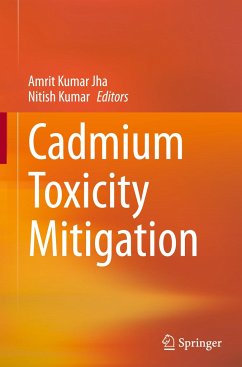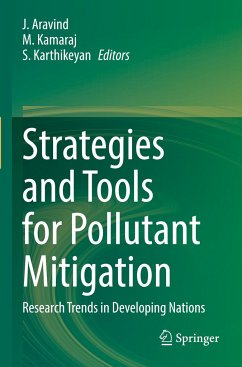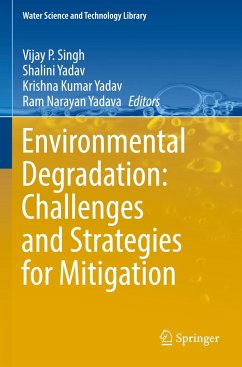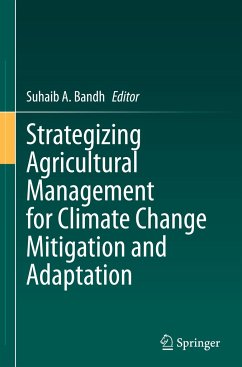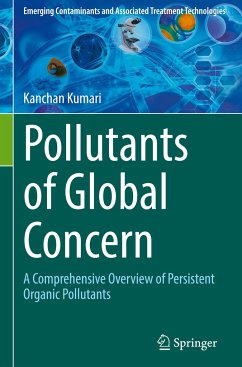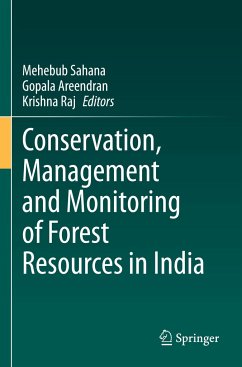Dr. Nancy George is an academician and researcher with more than 15 years of experience in the field of biotechnology. She received her doctoral degree in Microbiology from the Panjab University, Chandigarh, India. She is presently working as Associate Professor at Chandigarh University, Punjab, India and is involved in research work focussed mainly on environmental biotechnology and applied microbiology. She is a life member of numerous scientific/professional societies including American society for Microbiology (ASM), Association of Microbiologists of India (AMI). Dr. George has received a senior research fellowship from CSIR, India and has numerous publications in various high impact journals of international repute with total citations of more than 350. Her research work is directed towards agricultural waste management, waste valorization and development of value added products from waste. She is also interested in remediation of microplastics and other emerging contaminants from the environment. Her current research projects include synthesis of nanoparticles from agro-waste for applications in environment remediation and degradation of emerging pollutants in aquatic environments. Dr. Vagish Dwibedi did his B.Sc from Lucknow University, Lucknow, Uttar Pradesh, and Ph.D. from Thapar Institute of Engineering and Technology, Patiala, India. Dr. Dwibedi is an academician and researcher with more than 8 years of experience in biotech research and development. He has carried out research projects and consultancy work in the areas of plant-microbe interaction/ bioassay-guided drug-discovery and development, food security/sustainable agriculture and waste water treatment. Presently he is working as Assistant Professor at University Institute of Biotechnology , Chandigarh University, Gharuan Mohali, Punjab. Formerly, he was worked as Research Scientist at Agpharm Bioinnovations LLP incubated at Thapar Institute of Engineering & Technology, Patiala, India. He was also Winner in Down select competition- DST- Lockheed Martin- Tata Trust _IIGP 2.0 (2k18) (India Innovation Growth Programme 2.0) Innovation ID: IIGPUIBSUNB (The award carries financial support up to 11 Lac INR.). Dr. Dwibedi work is directed towards the development of screening platforms for different biological activities such as anti-microbial, anti-oxidant, anti-cancer, or finding novel molecules that interfere in the mechanism of development of diseases such as Alzheimer Dementia (AD), Parkinson disease (PD), Obesity, Anti-gout (arthritis) and type 2 diabetes. He is also interested in food security, which predominantly involves the exploitation of plant-microbe interaction to combat abiotic stress and post-harvest preservation to enhance the shelf life of fresh crop/horticulture produces. He has published more than 15 research papers in various national and international journals and published 1 Indian patent. Dr. Santosh Kumar Rath is amedicinal and natural product chemist with more than 10 years of experience in research, academia, and industry. Dr. Rath received his doctorate from AcSIR at CSIR-Institute of Minerals and Materials Technology (CSIR-IMMT), Bhubaneswar, India. Presently he is working as Assistant Professor at Department of SoPPHI, Faculty of Pharmacy, DIT University, Dehradun, Uttarakhand, India. Formerly, he worked as an Associate Professor and Research Head at the Department of Pharmaceutical Chemistry, Danteshwari College of Pharmacy, Jagdalpur, Chhattisgarh, India. He also worked as Research Associate (CSIR-RA) in the School of Chemistry & Biochemistry at Thapar Institute of Engineering & Technology, Patiala, India. Dr. Rtah has received Research Associateship from CSIR and Senior Research Fellowship (ICMR-SRF) from ICMR, New Delhi India. He did research at CSIR-Indian Institute of Integrative Medicine (CSIR-IIIM), Jammu, India. Dr. Rath has many publications to his credit, published more than 25research papers in highly reputed international journals, 4 book chapters and 1 Indian patent. His area of research are Natural Product Chemistry and Organic Synthesis, in which he has expertise in isolation, identification, and characterization of bioactive secondary metabolites, structural modification of major chemical constituents from plants as well as fungal sources. His research areas involve multistep synthesis of biologically active synthetic and/or natural product-based hybrid scaffolds for lead identification in special targets to neurological disease, cancer, HIV, Covid-19, and infectious diseases. His research is mainly focused on the synthesis of novel P-gp and bacterial efflux pump inhibitors, besides synthetic modifications of the bioactive natural products for better activity/minimize toxicity profiles. Currently, he is developing new synthetic methodologies for C-H functionalization of heterocycles and other medicinally relevant molecules. Dr. Prakram Singh Chauhan is a Molecular Microbiologist, who obtained his Master degree in Biotechnology from Maharshi Dayanand Saraswati University, Ajmer, Rajasthan with first rank in university campus. He received his Ph.D. in Microbiology from the Panjab University, Chandigarh in 2015. He is life member of numerous scientific/professional societies including American society for Microbiology (ASM), Association of Microbiologists of India (AMI). He is enlisted two times (2020, 2021) in top 2% scientist of world ranking, data compiled by Standford University, USA. He is a recipient of several international awards/grants including prestigious Australian Endeavour Research award, Planning and Budget Committee (PBC) grant by Israel Council of Higher Education, Technion-Guangdong grant, INSO international scientist award-2022 on engineering, science and medicine, Young Scientist award (Industrial Microbiology)-2019 by AMI-New Delhi, and ICOBM-2014, Penang, Malaysia, European Project "Nano2Clinic" best poster and trainee award in Trieste, Italy, CSIR-Senior Research Fellowship etc.. Dr. Chauhan has published 5 international patents, 38 research articles in various high impact journals of international repute with h-index of 22 and presented his research in many countries in the world. He worked in Monash University, Melbourne, Australia under in the field of Nano-biotechnology. Currently he is working as a research scientist in Faculty of Biotechnology and Food Engineering at the Technion - Israel Institute of Technology, Haifa, Israel. His research is focused on fermentation technology, synthesis of multidimensional nanoparticle for immobilization of oxido-reductase enzymes for their improved properties, cloning and purification of milk protein for therapeutic and industrial applications.
